|
A guest blog written by: Cindy Gasaway RED FLAGS I was in an abusive relationship with my x husband for ten years. The following are bits and pieces I was either warned about, and ignored, or things I chose to ignore. I firmly believe that for those of us who got out, need to speak out our experiences to let others who may be in a similar situation know that they are not alone. And that you can be free. Let’s talk about hypersensitivity. In my past relationship, I learned quickly to think before I spoke. The smallest of things would offend him. How dare I leave his dirty pants on the floor that he put there? Mispronounced words meant I was stupid. Even an accidental fart meant I was "trailer trash" These are just a small number of things that would cause hours and hours of him being hurt that HIS WIFE would dare to do that! In his words, I was only out to hurt him, I was degrading him, and if I would just try to be a little more careful, I would not hurt him so very much to his core. And so, I tried harder to please him. Does your partner get insulted over the smallest of things? Did you mispronounce a word, or use it in a different context that he would have? Did he get overly upset because you did? Did he see this as a personal attack? Did he throw a tantrum? Does he often go off on the petty things? Does it seem to you, or your friends that he is just looking for a fight? How often does he blow things out of proportion? And most important, does he make you feel that you need to do better to prevent these things? If he does, he is already on his way to grooming you into submission. Love Bombing- "an attempt to influence a person by demonstrations of attention and affection" By definition, that doesn't sound too bad, does it? We all love attention and affection. So many of us crave it even. Because of this, we often overlook it as a red flag. This flag often takes place in the beginning of a relationship. My abuser was a pro. Because we dated in high school, he would often tell me how much he thought about me over the years while we were living different lives. He would make mix tapes for me, with each song sending a different message of love. He would buy me things, just because, and take me to any and all concerts in the area. He also quickly learned my love language, touch, and always made sure he held my hand, played with my hair, or rubbed my back. This, with an abusive partner, is manipulation. You will find yourself in a serious relationship with them, sometimes in just a manner of days. As long as you do everything the way they want you to do, this will continue. But the minute you become interested in something else, like friends, a sporting event, or even a tv show, anything that pulls your attention away from them...... You become devaluated. You will be punished by loss of affection. You may be yelled at, you may get the silent treatment, you may even get physically abused. And he will put the blame of his behavior towards you, on you. Now, you are on high alert, and you start to focus all your attention on them. This is when you start to lose your sense of self, and he knows he can start isolating you from every other thing you love. Even your own family. Gaslighting: Making someone question their reality. Anytime I wanted to discuss my feelings, or state my side on anything, my x would not listen. He would not put down what he was doing, or even look at me. I was told that now was not the time. If I brought up a past event, I was told I was remembering it wrong, or it did not happen at all. This would even be done regarding happy memories. He would often change the subject or throw in things to the memory that never really happened. He made everything thing I said insignificant or tell me he just simply forgot. He would tell me I was crazy, that my memory was shot, that it did happen that way, and many times I was told to shut up and go sit in a corner. I was being gaslighted. When this happens to you over and over regarding everything you say, you begin to question your own mental health. Am I really overreacting? Did it not really happen like that? Why is my perception so wrong? He had me so convinced that I went for professional help. I answered all the questions at the mental health clinic as he conditioned me to answer, and I was actually given the diagnosis as Bi-Polar, type 2, and put on medication. I took medication I did not need for years. It was only after I left and spoke MY truth that I was told it was only situational. He made me believe I was losing my shit. And I was, but not due to a brain chemical illness, but because of his treatment to me 1. Withholding 2. Countering 3. Blocking/Diverting 4. Trivializing 5. Forgetting or Denial To this day, if anyone tells me I am crazy about something I know is true, I will fucking call you out. My mental health is not worth anyone's mind games. Dr. Jekyll & Mr. Hyde One minute he was sweet as shit, then it was as if someone flipped a switch. It always caught me off guard. Kissing me one minute, then pulling away to go off in a rage over the simplest things. The bacon curled when I was cooking it. A drop of milk on the counter. One of the kids left something on the table. These rages eventually turned into physical abuse. A slap A push Hands around my throat He would then usually apologize and say things like I just didn't take my meds today. If you would just, try harder Or blame it on either drinking too much, or not enough. (Withdrawal) Abusers never take the blame for their own actions. Honey, it has nothing to do with meds, that is not how they work. It is NOT YOUR FAULT they are the way they are. And it also has nothing to do with any substance, although many abusers are addicts of one form or another. If you stick around long enough, (and please, I am begging you- DON'T) you will only get so many excuses on why he treats you this way, and none of them involve him. I often thought my x had a split personality. When he was in these rages, the shape of his face would change, and his eyes actually went black. I never, ever thought or believed he would actually try to kill me. Because he made me believe I just had to try harder. Rigid sex rules Sex with your partner needs to be consensual, and your limits should be respected. On my honeymoon, I was forced to perform oral sex, then sleep with his penis in my mouth. He loved sex toys, but not for use on me. I had to do many degrading and humiliating things to him with those toys. Anytime I expressed how much I didn't like doing these things, I was berated for days on end about how I should be grateful that he "trusted" me to do these things for him. Afterall, I was his wife, and I should love to please him. Everything from painful bdsm, rape, sodomy and wanting to bring in strangers was either suggested or happened against my will. He even spoke of kidnapping others to participate, which thankfully never happened. Other partners were something that never happened as well, because why would I allow another person to be subjected to that abuse? If I withheld sex from him, it was taken. It became easier, and less painful physically to just allow it. It wasn't until after I left that I realized the damage done to my body and had to have surgery to repair it. These unspoken sex rules will usually start out small. Trying new things can sometimes be exciting. The request will then grow from that, and soon you may notice that these requests are only for his enjoyment and has nothing to do with yours. Your boundaries will be disregarded, or even ignored completely. You become his tool, not his lover. Some of you will wonder why in the hell I write something so personal. It sure as hell isn’t easy, but if I don't speak my WHOLE truth, then why am I even speaking? Addiction The first time my abuser used cocaine, he used a needle. Although when we were together, cocaine wasn't being used, the effects of his past use were apparent. He would often tell me stories of his many overdoses, his paranoia, and his escapes from recovery centers. Some were so outlandish; I often questioned the validity. He is also an alcoholic. He would go into binges that lasted for months on end. He would mix his vodka with Klonopin and Xanax. Or Codeine. Or Ecstasy. Or anything else he could find. He had prescriptions from two different doctors in two different towns. He would also order testosterone from overseas, online. These mixtures often caused hallucinations like where the gallon of milk in my fridge became a severed goat head, and I was its demon protector, which he had to eliminate by picking me up by my throat and throwing me through a wall. This was the first time we separated. He was committed to a mental hospital, and they allowed him to call me nightly. I quickly believed all his claims to do better and attend AA. Since I was the one to have him committed, they also allowed me to sign him out. I also learned quickly that his abuse had nothing to do with him being under the influence, it was just an excuse to blame more severe abusive behavior. Not all addicts are abusers. Not all abusers are addicts, but if you have any of the other red flags, paired with an addiction Prescription Meds Illegal drugs Alcohol Or even bodybuilding and any other thing they are obsessed with.... You need to get a safety plan in place FAST Isolation For me, this started out small. No more family dinners, the noise was too much for him. No social activities, he would be tempted to drink. No celebrations, no trips, nothing, unless of course it involved his family. It grew. He physically threatened my parents, he told me constantly that my kids didn't need me, and then he moved me out of state away from my family. We moved back to my hometown, where I had friends. I thought it would be better. I was wrong. All my friends had to be screened. If they had any connection to any of his exes, I was to have nothing to do with them. Problem was, we were all connected. I was told I wasn't contributing financially to the family, so I went to work, and I loved my job. Because I loved it, I was told I wasn't around enough, and my paychecks were "chump change" and I had to quit. When he was away in the oilfield, the gps tracker had to always be on my phone. He had cameras in the house he could watch from his locations. If I dared go anywhere, he would blow up my phone continuously asking where I was and what did I think I was doing, and even created emergencies where I would have to leave. I couldn't enjoy myself and was neglecting everyone around me because I was always on my phone with him. It became easier, and safer, to stay home alone. I lost my friends, my family, and my income. I was stuck. Right where he wanted. Signs of beginning isolation from my perspective: He will be very charming at first to your family and friends. He will offer to help them with anything. He may even give them gifts. He needs to gain their trust. He will then start to make snide comments, off the side, about them. He will start telling you that you are all he needs. He will allow, knowingly, some of his flags to slip in front of them so they will become concerned and try to talk to you about their concerns. And you will defend him because the slow manipulation has already begun. Your friends and family will slowly stop coming around, and he has you right where he needs you to be. Codependency has started. Sleep Deprivation Practice of routinely interrupting, impeding, or restricting another person’s sleep cycle. Honestly, before I started doing research for all these red flags, I didn't realize that sleep deprivation was a common thing for abusers. I just thought it was something my abuser did. This method didn't show itself until the beginning of the end of our relationship, and for the last 3 months I was with him, if I slept more than 2 hours straight, it would have been a miracle. But I really don't think I ever did. I had just laid down one night, or one morning. It was 12:15am. He needed more alcohol. He yelled at me to find him beer and not to come back until I did. The problem was that alcohol wasn't sold after midnight. The other problem was that my kids were in the house, so I felt if I left, it would not be safe for them. If I stayed, well, I would pay for not getting beer. I paid my fees. He would often sit in the garage all night, intoxicated and under the influence of whatever drug he mixed his alcohol with, and play the same song, over and over and over, so loud that I couldn't keep pictures on the walls. He would also, at the same time, be using his woodworking tools. How anyone in a 5-mile radius slept is beyond me. I cannot tell you how many times I laid in my bed, wishing he would fatally cut himself with one of his saws. Yes, that is exactly where I was mentally at that point. Other times, he would greatly exaggerate any physical ailment and have me take care of him all night. Bring him a glass of water, give him pain meds, rub his back, make a full meal in the middle of the night, etc. etc. I couldn't sleep because he may "need" me. If and when he would pass out, I thought I could finally get some sleep, only to wake up just an hour later to find him standing on the side of the bed, pissing all over the bedroom floor. It then became my responsibility to clean it up. I was so exhausted that I often felt drunk myself. I would fall asleep making dinner, standing up. I once fell asleep while on the toilet and only woke up when I fell to the floor. I didn't feel it was safe to drive anywhere, I couldn't carry on a conversation, and it was very difficult to watch what I said or did. All my self-made safety mechanisms were down. I was in extreme danger. Pressuring you to use drugs or alcohol. A friend of his was selling Ecstasy. I casually mentioned to him that this was something I had wanted to try during my high school drug use that I never really had the full experience of. Next thing I knew, we were in another town, in a cheap hotel, with a small number of tabs. We both took some. The experience for me was amazing- I'm not going to lie. Everything was calm, peaceful, and the whole room was beautiful. We just sat on the bed, naked, holding each other. The drug gave me a false sense of understanding him. I seemed to believe I could see deep down into his soul. We just sat there, all night, talking and touching each other, and although sex was not involved, I felt I had just had the most trusting sexual experience of my life. As the years went by, he would occasionally bring home more. I was so desperate for that peace, I agreed to participate with him. It eventually turned into taking it only for sex, and it got to be the only time I actually enjoyed having sex with him. About halfway into our marriage, he was bringing some home every weekend, when my kids were with their father. It was becoming more of a habit for me, verses just a casual thing. I knew it was quickly going to be an unbelievably bad situation for me if I didn't stop. I told him no more. One morning, I woke up, took my vitamins, and left to go to the grocery store. As soon as I proceeded down the aisles and started my shopping, that familiar "rolling" feeling hit me. I knew I was under the influence and immediately went home. He laughed when I got home. Because I had told him I no longer wanted to do ecstasy with him, he replaced the vitamins in my capsules with meth. He then proceeded to do anything and everything sexually with me, because I was too fucked up to stop him. Later in our marriage, he grew cactus, chopped it up, cooked it, blended it, strained it, cooked it again, and made me drink it. I threw up, but apparently, that was part of the process. I was terrified thinking he had poisoned me, and I was dying. What he was actually doing is drugging me again, so he could again do whatever he wanted. Be incredibly careful getting involved with someone who maybe has a drink in the mornings, drinks all day, and or has a history of drug abuse. This also involves prescription medication. It is even more worrisome if they are active drinkers along with drug addiction. You may soon find yourself in an active addiction as well. It will start out casual, but you will start to drink more, or participate in drug use, simply because they poured a drink. This is especially true if you yourself are dealing with issues that have not yet been resolved. Trust me, they know your grief, your sadness, and your struggles. They will take advantage of this, and encourage you to have a drink, smoke a little, or just take this pill. Emotional abuse. Not all abusers hit, punch, or push. Just because you are not getting hit, does not mean you are not being abused. I could take the physical abuse any day. I would much rather take being hit, than all the emotional bullshit I went through. Why? You don't feel the punch because you are in shock you are getting hit. The bruises heal, or they are easily hidden. You live with the emotional bruising forever. I left in 2013 and I still suffer with those unseen bruises on a daily basis. I was screamed at. I was white-trailer trash I was an insignificant flea on a very small dog. It was my fault he was an addict, he lost his job, or my kids wanted to leave. I frequently cancelled family events and had no friends. He would leave me if I didn't improve my actions, my cooking, my attitude. I had to tell him anytime I went anywhere, with who, and when I would be home. I was threatened with suicide, divorce, and "choking me out" A big argument where I stood my ground meant my cell phone would be shut off and I would be removed from our joint checking account, or my allowance would be taken away. When I did have access to money, I had to turn in a weekly spreadsheet showing where that money went. He would steal my anti-anxiety meds as punishment. He often told me that if I ever got breast cancer, he would leave if I had to have a mastectomy. He called me damaged goods when I confided in him regarding childhood sexual abuse. He made me feel powerless, I had no friends, my parents dis-owned me, and I was alone. Over time, I believed every single thing he ever said about me, and without friends or family to support me and tell me different- I became his property. I became fat and ugly. I became unsure about any decision I had to make, I became a mother unsure of her children's love for her, I became lonely, afraid, and submissive. I became everything he wanted me to be, and I lost who I was. Guilt trips Causing another person to feel guilt or a sense of responsibility to change their behavior or take a specific action. We really didn't do holidays with my family. It started out with "It's too loud for me, and progressed, when my family saw the red flags before I did, to "you just go, I'll just spend the holiday here, all alone, all by myself." I didn't really notice it until it was too late, but this was isolation in the form of guilt trips. If I went without him, I felt bad because he was alone, if I stayed home, I felt bad because my kids were upset. I was constantly being pulled between two worlds. And whichever world I choose, I was guilted by him for the choice. So, I choose him, because I believed everything I did, or didn't do was my fault, and being lectured by him was something I had grown used to. And you never get used to being lectured by your family. And it almost cost me my life. The cycles of manipulation The abuser will actively seek out someone who is vulnerable, sad. lonely, or even drug/alcohol addicts. They will watch and learn all your strong points and weaknesses. They will start to "understand" you and show great interest in your job, hobbies, etc. They will quickly become your friend and shower you with gifts and compliments. They will earn your trust. Once that is accomplished, they will make sure they become someone you can rely on- for anything. They will make you feel special. They will have the ability to understand you in ways no one else can You will continue to receive gifts, praise, and rewards They may ask you to keep secretes regarding the things you do together. They want to "protect" you. They then become your partner, and slowly start isolating you from family and friends You start a sexual relationship They may lower your inhibitions, sexually They may start to involve you in illegal activities They will bounce from showering you with affection one day, to being distant the next, then bounce again. They will then withdraw, start to demand sex, lower your self-esteem, verbally abuse you. They make you believe you owe them If at any time, you call them out on these behaviors, they start all over at the beginning. They become your best friend again, they make promises to be better, they may even take steps to be better. My x was a pro at this game. I promise I will go to AA- he went maybe 3 times I promise I will go to counseling - he went once I promise I will attend anger management - he was court ordered and bought his way out of finishing the course. I also had an abundance of what I now call guilt gifts, jewelry, boots, expensive furniture, and many, many meals at swanky places. He would suddenly want to do the things I wanted to do. And once he had me reeled back in, the manipulation would take another cycle. And just so we are clear, this is the exact same method pedophiles use to lure in young children. This doesn't mean your abuser is a pedophile, it just means they think alike. Now, I'm going to talk about a flag you don't see until it is too late. One you may not even realize until when and if you are able to leave. I am in a constant state of anxiety. Somedays are better than others, but it's always there. I take medication daily that has its own side effects. It makes me more withdrawn; it eliminates some feelings I should feel, and it takes away my sex drive. But if I don't take it, I'm either crying or screaming, and feel scared and helpless. PTSD is another factor. My husband is on a dart league, and he plays at a bar, every week. A bar that often has drunk men with loud voices. Just stepping foot inside is a task that is difficult, and I'm sure his fellow players think I'm a snob, sitting alone, in my phone, hardly speaking But over the years, I have grown to feel more comfortable there. Just not there yet. If you are meeting me for the very first time, I will be withdrawn. I must watch you for a minute. I have to see how you handle a stressful situation, especially if you are drinking. I have nightmares. I have deep, deep feelings of insecurities, worthlessness, and that I can never be loved. And that is just some of the mental bullshit. Anxiety increases the level of cortisone in your body. This leads to physical problems. I take thyroid meds, I have joint pain, my body is inflamed. I have improved tremendously since 2013, but I am so afraid that I will deal with some of these issues the rest of my life, and that just gives me more anxiety. It is still a cycle of abuse. Mental health is real, protect it at all costs. Physical abuse To a lot of people, this is an obvious red flag, and it is. But many times, it is overlooked over and over again. Physical abuse is shoving, kicking, slapping, punching, choking, hair pulling, etc., etc. We all know this, but why is it overlooked? The first time will be minor usually, and they were just mad. I should watch myself better, and he really is sorry. He apologized and even brought me a gift. He cried. The next time could be next year. I slipped and didn't watch myself. This is my fault. I really have to do better. For me, the physical abuse wasn't daily, it was sporadic. Each time it happened, I honestly believed it was the last time, and it was due to something I did. But each time is worse than the last time because you are subconsciously showing what you will accept. Over our 10-year marriage, I was choked, pushed, and thrown through a wall. I have had handprints, bruises, and scrapes. I have had black eyes, a bruised spine, busted ear drum and a cracked skull. And still I stayed because I felt I deserved all of it. I only left when my son witnessed him trying to kill me, and not because he tried to kill me. But because it was the first time any of my children witnessed it, and that tiny little boy looked at me, with his coat in his hand, and said, "Can we go now Mommy?" Possessiveness You belong to them, and you better act like it too. "A good wife doesn't go anywhere without her husband" "Why did that man look at you?" "Who are you putting on that make up for?" I was tracked, via gps on my phone so he always knew where I was. I was taught not to look any male in the eye if they spoke to me. I had to remember to walk right beside him anywhere we went so other people would know I belonged to him. Because I spoke to my uncle, I was accused of sleeping with him. If I forgot to put on my wedding ring every morning.... Well. He would even have me dress like him so others would know we were together, even went as far as matching shoes, and matching jewelry. I honestly feel like this caused some sort of personality disorder. I struggle with who I am, what I like to do, and how to dress. I find myself, often, copying the styles of other women that seem so confident in themselves. And I'm still afraid to find that person that lives inside me, that so wants to get out. You slowly start to act like your abuser. You become who you surround yourself with. Since you are becoming isolated from your friends and family, all you have are his. Since your hobbies and interests are insignificant, all you have are his. Because you live in an angry environment, you become angry. There were at least three times where I became physically abusive. The first time scared the shit out of me, because I knew this wasn't who I was. Our bedroom was in the upper level. He was angry and I don't even remember what for. The change in his face told me I was going to get hurt. I ran upstairs to try to lock myself in the bedroom, but he got ahead of me and met me at the top of the stairs. He pushed. I held on to the doorframe to catch my fall, and when I did, the trim came off in my hands. He turned his back. I saw red. The rage I had been stuffing down took over. I started swinging that trim like a baseball bat, striking his bare back, over and over again. He told me to back the fuck up, and I stopped. He ran some bathwater and sat in the tub, saying he needed to cool off, and proceeded to tell me that if I couldn't grow up, he would leave me high and dry. The rage took over again. I grabbed him by his ears and proceeded to bang his head against the tile. Again, over, and over. The whole time screaming, "HOW DOES IT FEEL TO GET HURT BY SOMEONE WHO IS SUPPOSED TO LOVE YOU!?!" He just smiled at me and said that I just proved his point. And I knew he had won, again. He got just the reaction he was looking for. Charm The abuser is friendly, social, and knows how to work a room. They can tell you they were abducted by aliens as a child, and somehow, just from the way the story is told, you will believe it. Many will take immense pride in appearances, and social status. If and when it comes out that they are an abuser, many people are shocked and don't believe it. My x was incredibly attractive. He wore nice clothes, always made sure we had nice things, and took to body building. We all had to look good in public. He also made sure to take lots of pictures so he could show everyone "just how happy we are" The thing about photographs though, is you only see what the photographer wants you to see. Many of the pictures he took of me are from the back because I was often crying. Or I simply refused to smile. After I left, he loaded his social media, which he never had prior, with many family pictures. Family pictures that were all lies but would further his claim that he was innocent. Because how could someone so charming be an absolute demon behind closed doors? ESCAPE PLAN Now that you know red flags, it's important to know how to get out if you are already involved. Leaving is dangerous. Most women who are killed by their abuser, are killed in the leaving stage. You must plan carefully. 1. Decide ahead of time where you will go, somewhere that will be the last place he can find you. 2. Who will let you stay? If needed, who can lend you cash? 3. Have a bag, already packed, with a few sets of clothes, important paperwork, extra sets of keys, and any medications. Have this bag hidden in a safe place away from your home. Have a burner phone in that bag. 4. If you can, have a hidden bank account. If you don't have your own income, do whatever it is to get money into that account. Cash back when you get groceries, etc. 5. Memorize any and all crisis phone numbers. 6. Do not use your own computer to find resources. 7. Have a code word with family and friends. 8. Memorize your plan. 9. It is best to leave when he is not home. If at all possible, do not wait until you are in the middle of an explosive event to leave, like I did. I was extremely lucky I got out alive. I read somewhere the other day that if your abuser uses strangulation as a form of physical harm, you are 70% more likely to be killed. I don't remember where I read that, but if this is you, get a plan in action now. It has now been released that Gabby Petito was killed by manual strangulation. When I heard that, it brought back so much fear, so much panic. I guess, thankfully, some people will never know how much anger and violence you feel when someone has their hands around your throat. So fucking personal. This was my abusers most commonly used tactic. I don't know why he let go of my throat that day, but he did. Do not wait to run when you are having a hard time catching your breath. You have left, now what? Being on your own may be new. It is a whole different world. You will struggle, you will be scared, you will not know what to do. Your old life will seem easier. You knew how to act, you probably had a routine, and you had a roof over your head. Do not give up and go back. Use every available resource. Do not be ashamed to receive government assistance if you have to. Free counseling is available. Churches will help, accept any and all help from friends and family. Go straight up no contact. It is hard at first, but the more you engage with him, the stronger the pull to go back. When I left, I stayed in a shelter. There were two sets of bunk beds in my room. I had to check in and out, had to let staff know where I was every minute of the day. I was locked in when he could roam about freely. It didn't seem fair. But I stayed. My friends raised enough money so I could leave the state. People I never met donated thousands of dollars. Every time I felt like going back, I knew I couldn't waste the investment they made in me. They held me accountable. I swallowed my pride and called my dad for help. I had not spoken to him in 10 years. I left the state and stayed in other people's homes until I could scrape up enough money to rent our own. When I was working 3 jobs and still couldn't make ends meet, I moved to another town, and stayed in an extra bedroom at my kid's dad's house. Also, be prepared for the verbal abuse of strangers if you have to receive assistance. The lady in the line behind you in the grocery store that berates you for using your SNAP card to buy a $1.00 box of cake mix so your kid can have a somewhat normal birthday. The man who wonders why you are dressed nicely because all you were able to take were clothes but sitting in the social services office. The others that question why you have that smart phone that the local dv organization gave you but live in government housing. DO WHAT YOU HAVE TO DO REGARDLESS And keep doing it until you find yourself again. I left in 2013. I left my home state, which I love very much, and came here. I gave myself several goals at first. 1. Three years max on government assistance. 2. Stable employment that was a good fit for me and my kids. 3. No committed relationships for at least a year. I struggled, but I also met my goals. This meant I had to step out of my comfort zone many times. I had to pretend to be happy. I forced myself to find the bright side of every situation that stood in my way. The first year, I was reckless. I drank. A lot. The decisions I made for myself were not good ones. It wasn't until I was walking home at 4:00 in the morning, 5 miles, from a one-night stand with a 24-year-old I met at the bar, that I realized I was still in danger. But now, it was from myself. I left that town and came here, where I am currently. My x had my car repossessed after I was two days late with the payment. I didn't make enough to cover rent and utilities. But I kept pushing. I finally found a good job, made good friends, and reconciled with my parents. I learned to make better decisions and worked hard on changing my perspective. I fell hard for the man that I had a non-committed agreement with, and we eventually married. We own our own home, and he has never even raised his voice to me. He makes me laugh every single day. My point is that you will struggle, you will make bad choices, and every single day will be fucking hard. And as long as you don't live there, one day you will wake up and realize that today you feel good, today you are happy, and the smallest of things will make you smile. You will love music again, you will dance in your kitchen, and you will find whatever your personal happily ever after is, as long as you work for it. Put your boots on, and keep walking forward, even if it takes two steps back to do so. Thank you to Cindy Gasaway for writing this guest blog and sharing your story!
0 Comments
The most effective form of communication is assertive communication. Learning to remove passive, aggressive, and passive aggressive communication helps to improve ineffective patterns of communication in your relationships.
The following is a written summary of my contribution at the Panel discussion I was a part of, during the 1st International Conference of Applied Neuroscience, along with John Arden, Daren Wilson, Thedy Veliz, and Roger Mysliwiec. Personally, I believe that neuroscience offers clarity and proof that people are generally good and need to experience compassion. I believe neuroscience reinforces the need to depathologize. I think it reinforces that we are all largely the same in the components we possess, but we’re all just dramatically different from one another in the way we are coded (and continuously recoding). Because there are 7.5 billion people on the planet and each person has about 100 trillion synaptic connections, where our experiences/memories are stored, it’s not even mathematically possible for any 2 people to be the same. So, neuroscience is forcing us to learn to accept differences and meet individuals where they are; to engage with each individual’s personal realities.
Neuroscience also teaches us to continue to fight for healthy environments for people. It has made me a better clinician and it has made me a better human. Neuroscience has forced me to better myself and ensure I am bettering environments for any individual I work with, personally and professionally. Bruce Lipton, a cell biologist, speaks about how if you have 3 different cloned cells and you put them in 3 different petri dishes, it’s not the cell itself that determines the health of the cell, it’s the environment in which the cell is placed. It’s even the environment that determines what a stem cell becomes. And what are human beings? Bundles of cells. We must consider every cell as much as humanly possible. Another benefit of understanding how to apply neuroscience is the knowing about the importance of change and “failure” for growth. Applied neuroscience has helped me as a professional teach my clients to thrive in failures and to grow from adversity and it has helped me teach clients how their brains do that most effectively. It has helped me help them understand how to work with their brains and not against them. It has helped me help my clients to consider their entire system; to know the people around them need the same considerations for their best mental functioning and that healthy relationships are those where 2 people take responsibility for both individual’s equal value. It helps me teach them that they affect one another and are affected by others, not only at a cellular level, but the quantum level; that our energy, things we can’t see, do exist and do apply force in our lives. On a personal level, applying neuroscience has made it possible for me to move past uncomfortable experiences and hurtful people, remove ideas of intention, to respect the automatic and mechanical function of the nonconscious mind as the heaviest weight in decision making, especially under stress, both for myself and for other. I have learned that prior learning experiences, whether implicit or explicit learning, drive the responses we make, based on our automatic predictions. I see most people in the purest light with a clear and unintentional infallibility, which places demands on myself to require tolerance for all people. Neuroscience gives me hope! In the political chaos that currently encompasses the United States, I am hopeful, not only for a political change (!), but also for the humanity that does exist in people. I know that all humans begin their journey in life with the drive for safety, connection, control, motivation, and self-actualization and that as life goes on and the synaptic experiential Page 2 of 2 storage increases in each person, that each individual’s needs is defined differently based on experience. As a 10th grade dropout with and ACE’s score of 8, who didn’t receive all those needs until I was in my 30’s when I met the human who offered me all of them (my incredible husband), I am here to say it’s possible to unlearn responses and to erase emotional learnings! I am hopeful that as the word gets out about what we know from neuroscience, that people will be inclined to improve their tolerance for and attach less meaning to differences as well as to their own experiences. After all, we are all responsible for what others say and do because we are the ones that give it meaning for ourselves. Meanings, beliefs, knowings, schemas, emotional learnings…whatever you want to call them, are flexible and can be changed at the neural level. And the electrochemical messages that tell us to take or not take actions to change with them also change. I am sure the majority of people on this planet are generally good and have an interest in such change, so I believe strongly that through compassionate considerations for past experiences and the sharing of easy to understand neuroscientific components to all people that the world can be a better place. I want to continue to be a part of THAT! I want to change how the mental health system is viewed, which means we have to change how the mental health system views people. Nobody sucks on purpose and we are all products of our experiences. I believe most people still possess the curiosity, interest, imagination, and innocence that began in childhood and they just need someone to connect with that part of them. Neuroscience verifies that with the knowing that at 3 years old we have more neurons than at any point in our lives and that as life goes on our brains form association after association. Jon Connelly, the developer of Rapid Resolution Therapy, talks frequently about this, saying, “we put the flies in before the screens are up.” I am here to say, we can take the screens off. We can learn and we can UNLEARN. We can remove emotional responses that WERE normal, but are just no longer effective. This context change stops us from continuing to try to be “NORMAL”, because remember, there is no “NORMAL”! It’s not even mathematically possible. Instead we’re just working to be more effective. No guilt, no shame, no embarrassment, no resentment, no preoccupation necessary, because science also proves to us that it’s also not possible to have ever been any better than you were! We’re just always learning only to be more effective for ourselves and others, because it’s better for the world when our brains are working optimally. I hope all of you will also continue doing your part to better our world through neuroscience and become a nutrient to your environment. Thanks for your reading, Mary Bowles, MA, LMFT, RRT, MIAAN © 2019  I’m asked frequently about Neuropsychotherapy, so I thought it would be important to share a little more about it. Neuropsychotherapy is a way of doing therapy that always considers the brain, first. When we understand the needs of the brain and how it learns, transfers, and stores information, protecting and improving mental health becomes much easier. I use Neuropsychotherapy knowledge to help clients recover from trauma (including PTSD), stressful relationships, behavior issues in adults and children, parenting strategies, substance abuse, anxiety, depression, and many many more areas that affect mental health. Because I am not only a certified Clinical Neuropsychotherapist, but also a Licensed Marriage and Family Therapist and a Rapid Resolution Therapy Practitioner, I always ask myself, “Is this a good brain-based strategy?” Neuropsychotherapy does not remove the techniques that I already used to encourage change in my therapy practice, it only ensures I use techniques that work with the brain, not against it. When I am working with a couple, family, or group, I must always take into account the brain needs for all parties. Using Neuropsychotherapy, I can easily explain to my clients what is happening in their brains during stress, how neural pathways are formed, and how the brain responds and reacts under stress depending on their neural wiring. I make sure each client is aware of the brains need for safety, connection, sense of control, motivation (from dopamine production), and a healthy sense of self. Being brain based means, for example, when a client comes to me to help improve his/her relationship, I will always assess for emotional and physical safety, where positive connection and satisfaction already exists in the relationship, his/her sense of control, and his/her sense of self. If a client comes to me with anxiety, I may look first at his/her sense of control over life stressors, before other brain needs. I would not encourage time alone to a client who is experiencing a loss of connection in his/her life. I would always encourage a drinker to replace drinking with dopamine producing activities or experiences, to ensure a dopamine drop doesn’t interfere with his/her motivation to stop drinking. If you are working in any mental health field, I encourage you to become brain wise so you’re always working from the bottom up, like the brain does! The training is fun, friendly, interactive, and brain-based. Go! You will not regret it! Please don’t hesitate to contact me with questions, whether about the training, my experience, or the value in attending! There are a number of Neuropsychotherapy Workshops coming soon and the FIRST United States Workshop in Hawaii in October! I've attached the registration flyer below, along with the training summary and the learning outcomes for the workshop. You can also see more here! We need more Neuropsychotherapists in the United States and across the globe! If you can't attend the Hawaii training, I look forward to seeing you in May 2018 in Melbourne for the 2nd International Conference on Neuropsychotherapy (flyer also attached)! Working from the bottom up, Down Under! Mary Bowles, LMFT, RRT, MIACNI am a Licensed Marriage & Family Therapist, Rapid Resolution Therapist, and Certified Clinical Neuropsychotherapist. I specialize in couples and family relationships, parenting, divorce and blended families, and trauma recovery. I'm laid back about life and passionate about children, family, and learning!
Truly KNOWING your partner is incredibly important to a healthy relationship. Not just knowing what they like and what they don't like, but also knowing WHY! You and your partner change every singe day of your lives so maintaining daily connection is critical to changing together, instead of changing separately. When you change and connect, it doesn't feel like change!
Here is a great site you can use regularly when you're just hanging out to stay in touch with one another... http://thoughtquestions.com/ You can also read Gottman's, The Seven Principles of Making Marriage Work Learn about the brain and how quickly neural pathways are formed (here)...then consider why therapy works! It does work!
"The kids who need the most love will ask for it in the most unloving ways." Learn more about it here... NEW YORK TIMES BESTSELLER In this pioneering, practical book, Daniel J. Siegel, neuropsychiatrist and author of the bestsellingMindsight, and parenting expert Tina Payne Bryson offer a revolutionary approach to child rearing with twelve key strategies that foster healthy brain development, leading to calmer, happier children. The authors explain—and make accessible—the new science of how a child’s brain is wired and how it matures. The “upstairs brain,” which makes decisions and balances emotions, is under construction until the mid-twenties. And especially in young children, the right brain and its emotions tend to rule over the logic of the left brain. No wonder kids throw tantrums, fight, or sulk in silence. By applying these discoveries to everyday parenting, you can turn any outburst, argument, or fear into a chance to integrate your child’s brain and foster vital growth. Complete with age-appropriate strategies for dealing with day-to-day struggles and illustrations that will help you explain these concepts to your child, The Whole-Brain Child shows you how to cultivate healthy emotional and intellectual development so that your children can lead balanced, meaningful, and connected lives. NEW YORK TIMES BESTSELLER
The pioneering experts behind The Whole-Brain Child—Tina Payne Bryson and Daniel J. Siegel, the author of Brainstorm—now explore the ultimate child-raising challenge: discipline. Highlighting the fascinating link between a child’s neurological development and the way a parent reacts to misbehavior,No-Drama Discipline provides an effective, compassionate road map for dealing with tantrums, tensions, and tears—without causing a scene. Defining the true meaning of the “d” word (to instruct, not to shout or reprimand), the authors explain how to reach your child, redirect emotions, and turn a meltdown into an opportunity for growth. By doing so, the cycle of negative behavior (and punishment) is essentially brought to a halt, as problem solving becomes a win/win situation. Inside this sanity-saving guide you’ll discover • strategies that help parents identify their own discipline philosophy—and master the best methods to communicate the lessons they are trying to impart • facts on child brain development—and what kind of discipline is most appropriate and constructive at all ages and stages • the way to calmly and lovingly connect with a child—no matter how extreme the behavior—while still setting clear and consistent limits • tips for navigating your children through a tantrum to achieve insight, empathy, and repair • twenty discipline mistakes even the best parents make—and how to stay focused on the principles of whole-brain parenting and discipline techniques Complete with candid stories and playful illustrations that bring the authors’ suggestions to life, No-Drama Discipline shows you how to work with your child’s developing mind, peacefully resolve conflicts, and inspire happiness and strengthen resilience in everyone in the family. When you're body is responding to an attack (physical or emotional), your body is conditioned to respond. Like your cave dwelling ancestors, threat will ignite your fight, flight, or freeze response. Blood flow goes to your heart, your lungs, and your muscles in order to fight off an attacker or flee one. Your body is not highly capable of learning because there is less blood flow (oxygenation) to the brain. Your kids respond the same way. Fear based discipline will actually only slow down your child's learning! They may learn what your trying to teach them but it will likely take longer.
Do you want to be a feared parent, or a trustworthy parent? Do you want your child to make decisions based on whether or not he or she is going to get caught or based on his or her moral character? Connect with your child's emotions, and less with their behavior and they become capable of making choices based on emotional value. Here's a great opportunity for mental health professionals, social service professionals, teachers, parents, and community members with an interest in mental wellness and brain development. Nationally known speakers will explore the neuroscience of the developing brain. Often, couples will complain to one another by criticizing (i.e., "You always..." and "You never..." or "You're so..."). Start your communication with "I feel ___________ because I think_________. Would you be willing to ________________?" You're more likely to be heard, rather than your partner only responding defensively (i.e., "I don't do that." or "Yes, I do!") If you're not criticizing, there's less need for them to defend. Focus Time - When we closely focus on tasks in a goal-oriented way, we take on challenges that make deep connections in the brain.
Play Time - When we allow ourselves to be spontaneous or creative, playfully enjoying novel experiences, we help make new connections in the brain. Connecting Time - When we connect with other people, ideally in person, and when we take time to appreciate our connection to the natural world around us, we activate and reinforce the brain's relational circuitry. Physical Time - When we move our bodies, aerobically if medically possible, we strengthen the brain in many ways. Time In - When we quietly reflect internally, focusing on sensations, images, feelings and thoughts, we help to better integrate the brain. Down Time - When we are non-focused, without any specific goal, and let our mind wander or simply relax, we help the brain recharge. Sleep Time - When we give the brain the rest it needs, we consolidate learning and recover from the experiences of the day. When two people come from two separate worlds, have two separate sets of experiences every day, and two separate sets of dreams for the future, how can one expect there won't be conflict in a relationship? You can't! Conflict is necessary! It's not THAT you have conflict, it's HOW you have conflict!
How Fighting Can Actually Both Ruin and Stabilize Your Relationship This is a great video addressing how trust is built and how just ones thinking can pull them away from the relationship he or she wants so badly! The #1 thing that can help blended families succeed is for them to learn about the dynamics of a step family and to be prepared for them. It’s like pre-planning for a house fire, except YOU KNOW IT’S GOING TO HAPPEN.
Second & subsequent marriages are not like 1st marriages! The dynamics are entirely different. From the number of people to consider in decision making to the pressure you feel from the very 1st day. Couples must still learn to be a family, not just a couple. The couple should not divide by having “mine”, “hers” and ”his”... the family is "OURS"! “Only” being a couple leaves gaps in the family system for animosity and resentment to fill in. Couples must: **Renegotiate roles, responsibilities, traditions, and boundaries. These must be very clear and clearly communicated. Blending families means 2 parents must come together and blend philosophies on parenting and other family member roles and responsibilities. They have to renegotiate and blend their traditions and hopes and dreams. They must clarify and clearly understand new boundaries. When this doesn’t happen, these blended families stay divided. **Resolve their dreams of the past and for the future. Couples need to build a shared history and that usually means resolving some hopes for the future and grief for the past. Often people get married again before they have finished grieving for the lost prior relationship. They add this grief to the chaotic circumstances involved with blending a family and it doesn't often go well. **Risk being hurt again. A healthy relationship involves being vulnerable and imperfect. This means both must also demonstrate genuine acceptance. **Remove Ideology; families must get rid of the idea that a family has to be "THIS way" or "THAT way". They have to be flexible and confident enough to build the family they want, not the one everyone else has. **Respect – this means family members need to ALL understand that each person is going through their process separately and differently. Even between full siblings there will be differing opinions of the situation and the people. BUT respect and consideration has to be expressed, even if one hasn’t formed a solid opinion of the other individuals. If favoritism exists, this relationship will not be a happy one, and likely not successful. **Reframe ideas about stepfamilies and lose negative connotations. Blended families must consider themselves a FAMILY – not just two families who live together, there is no mine, hers or his. “The family is OURS (when talking to others, filling out forms, etc.). Society (and sometimes family and friends) often disputes this mindset. Referring to your family as a bonus family instead of a step-family can help remove the idea that a step-family is "less than" and first family. We all know the negative connotation that comes with the term “step” when referring to step-mothers, step-fathers, and step-child; that they are wicked, evil, rotten, spoiled, murderous, and just plain old second class citizens. Bonus-Mom, Bonus-Dad, and Bonus-Child are clearly more positive terms. Copyright © Mary Bowles, 05/31/2014 If you want a healthy relationship, start by listening to yourself. Do you sound like a parent when you speak to your partner? Do you speak with contempt and annoyance? Do you point out how you're right and he/she is wrong? The 2 biggest predictors of divorce are contempt and defensiveness (Gottman). At any point in your relationship you can remove those behaviors and improve your relationship. Start today!
“Parenthood isn’t about perfection. It is the business of imperfect humans raising other imperfect little humans to the best of their ability.” – Jennifer Meer
The world feels more hopeful when you understand that in every situation nobody can ever take from you your ability to choose your response.
Do you have a therapist? This site lets you share a picture of yourself holding up a sign that says “I have a therapist” to help other people feel comfortable with therapy! Let's make it normal. #NoStigma #TherapyisforEveryone
http://ihaveatherapist.com/ This blog post is my reply to Mountain Mama's blog post, How I Gave My Son Autism, located here. I think it's important to note, I posted this in reply to her blog post in the comments area...she deleted it from the replies. Wow! Correlation does not equal causation. She's clearly attempting to incite panic based merely on speculation. Neither personal opinion, nor experience equal valid or reliable research or evidence.
The author wrote nothing about the links between autism and bio-engineered foods (she should look into Monsanto!), hormones used in our meat & dairy supply, or even the most conclusive evidence—that autism is a genetic disorder. These just scratch the surface. This author only wrote a list of correlations professing each was the cause of her child's autism. She was not speculating. She was stating facts. This concerns me because some could rely on her propaganda laced blog to make decisions, which could potentially risk one’s life or mental capacity. There is no way, if she’s sane or educated, that she can dispute that the majority of her list of items has also saved numerous lives, potentially even her own child! Forgive me for putting this bluntly…would she rather have a child with autism or a dead baby?! A c-section or a still birth? Would she really try to dispute that c-sections have saved lives; mother and babies? I shudder to think if she would! Would she rather have an autistic son or one with polio? Would the world really be a better place if polio were still running rampant? Antibiotics, c-sections, and (although hotly debated) vaccines have saved how many lives? Even fluoride (contested by some) and acetaminophen (a fever reducer) indirectly save lives. She ought not to forget the benefits of most items on her list. I could profess that regularly eating from the garbage could increase our body’s natural ability to fight infection (by exposing our body’s to germs, thus increasing our immunity). And I could surely find a link to research on the internet that professes the increased need for germ exposure. But it doesn’t take into consideration all the other deadly bacteria we could pick up from the garbage. Stating this belief and providing a link doesn’t make it fact. It still makes it a speculation. Without replicated evidence the author has nothing. I saw a lot more “selling” than “proving” in her blog. She has a right to her opinion, but it should be stated as such. She stated it as fact…very biased fact. My biggest concern was the scare tactics the author used, seemingly to induce panic. I believe parents need all the help they can get and we already carry with us a guilt button the size of Texas. I believe MOST parents do the best they can with the tools and skills they have available to them at the time, in every situation. I am positive (although I am clearly stating this as my opinion) that rarely does a parent say, “You know what?! I think I’m gonna screw this kid up!” She should be helping parents make fully informed decisions, not scaring them into seeinf life from her supposedly factual perspective. I’d be ignorant to state that there are not risks associated with each of the items on her list, but in many (except for HFCS) and in my opinion, the benefits far outweigh the risks. And just because I wouldn’t do something, doesn't mean nobody else should. Different is not wrong. I just encourage taking educated risks if necessary. And now that she and I agree that we should all be educating ourselves, she should try a course on critical thinking and statistical reasoning. I know I've said this before, but parents, teach your children to question everything they've been taught, even if taught by you! Doing so teaches them to make educated choices and it frees them from the guilt of disagreeing with you, because face it, parents are not always correct!
I hope my kids never go to college if they are looking for their own self worth as society defines it. I want them to build their own dreams and to not be defined by the money in their "pockets." As a former high school drop out who is now a Master's level Couples, Child, and Family Therapist I believe I am qualified to assess intelligence. I can tell you, my husband is the most intelligent person I know!! He grew up in a junk yard and he also received a full ride scholarship to the school of mines to become a mechanical engineer. But after a year, college wasn't for him...he needed more freedom to build his dream and use what he already knew. He's happy, productive, and not defined by the pocket he pulls from. He contributes more to this world than most people I know! I have yet to see him unable to fix something mechanical, which also gives him the self confidence to fix most other problems. But nobody says to a kid, "go check out a junk yard if it interests you" because most don't see its potential. Look for potential in everything! Encourage, don't stifle, what a child is interested in! Just like Beckham understands physics from the game, my husband learned mechanics through play! Give kids the backing to trust their own drive to succeed and for God's sake, show up! You get one chance to raise your kids right. Do it right...be present!
|
Mary Bowles, PsyD, abd, LMFTMy blog posts are just some of the bits of information I find useful for some or all of my clients. Archives
December 2021
|


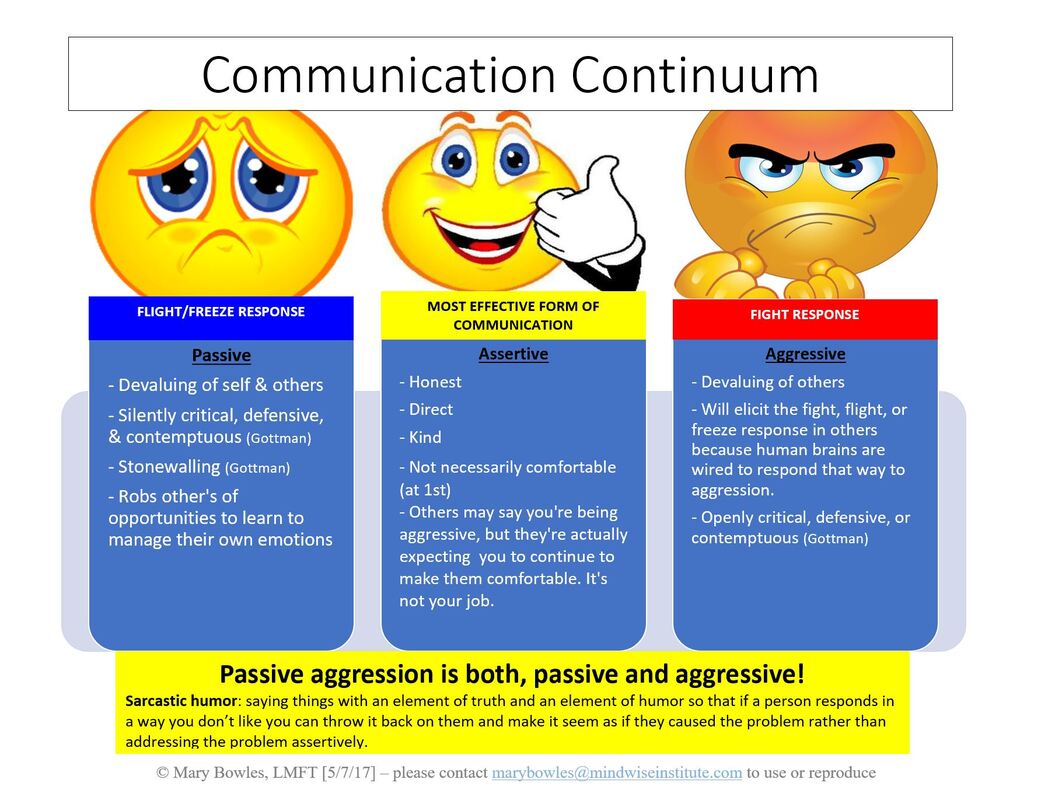
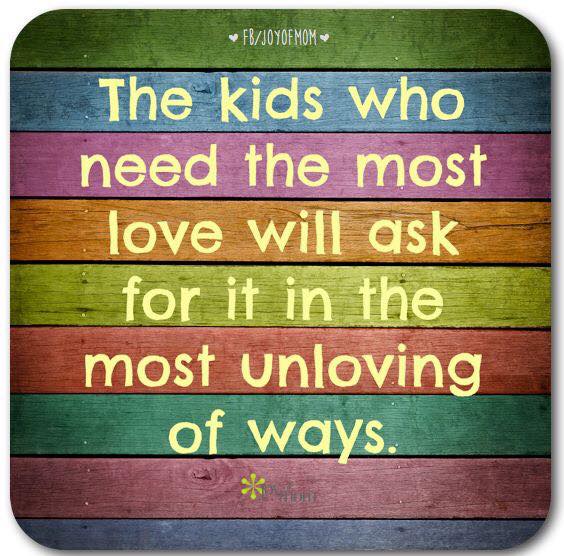
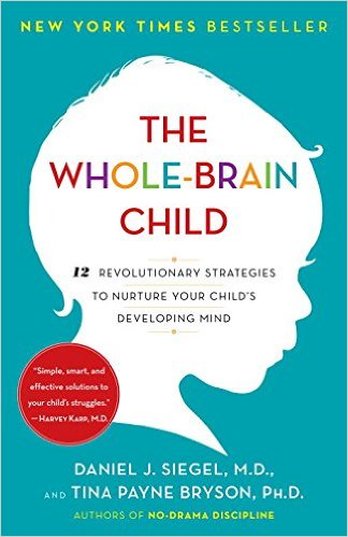
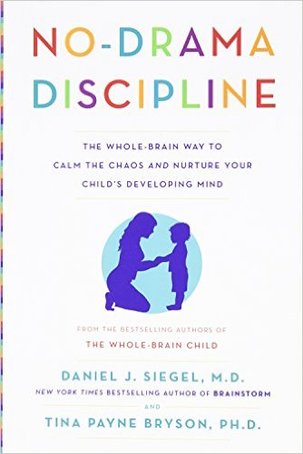
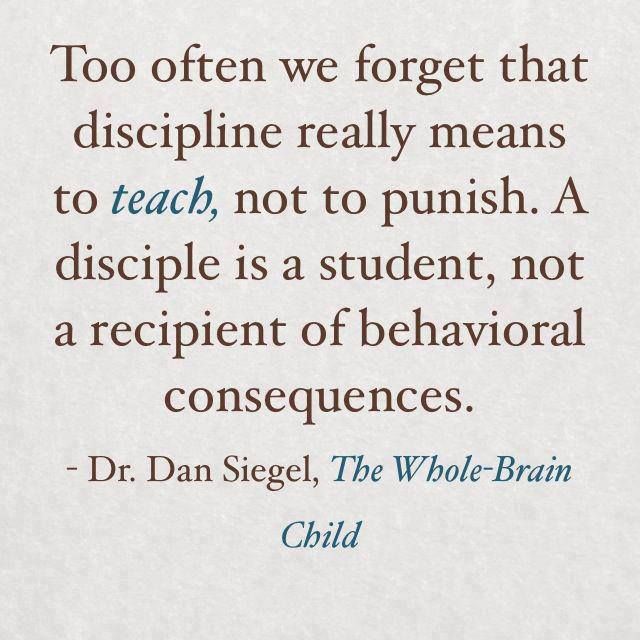
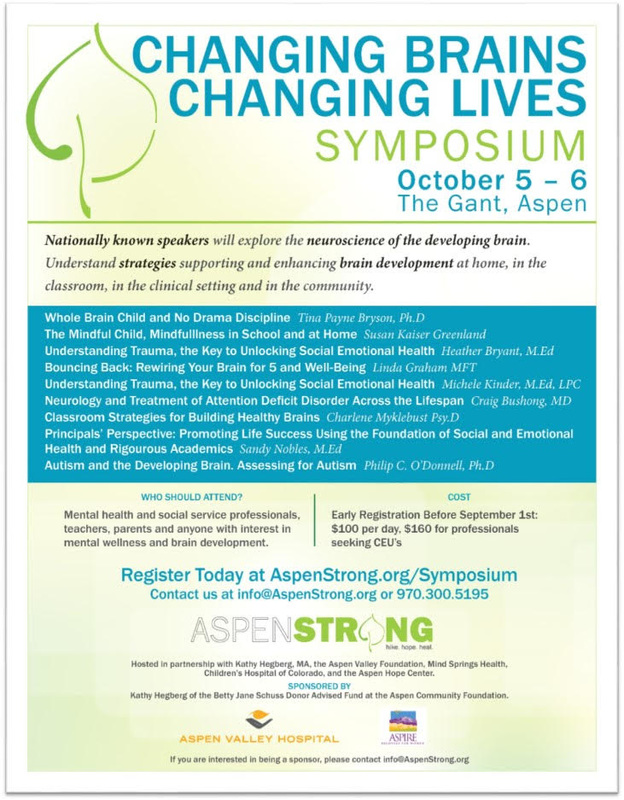
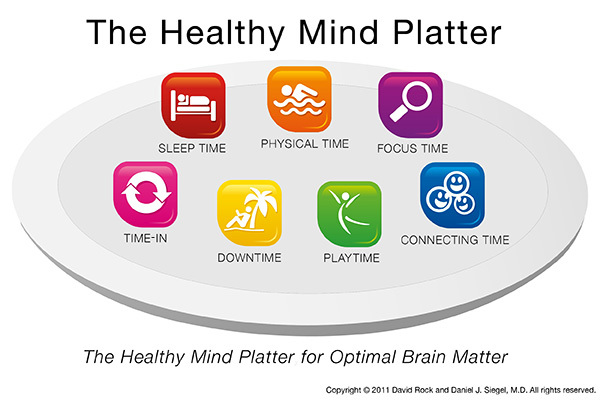
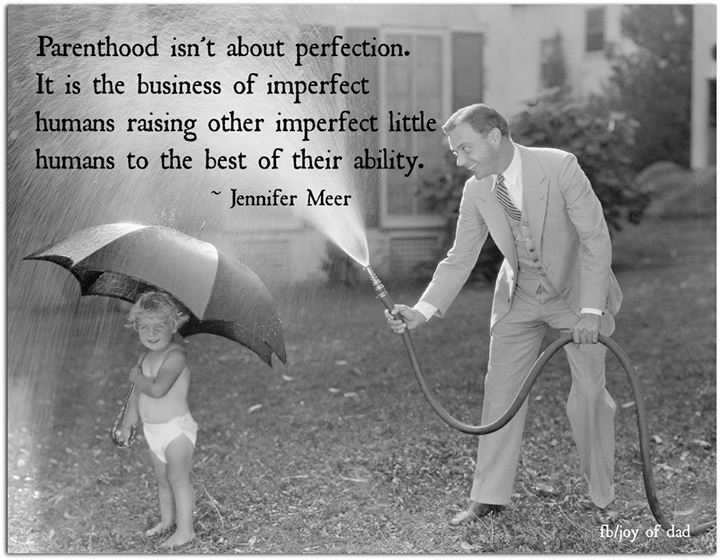

 RSS Feed
RSS Feed